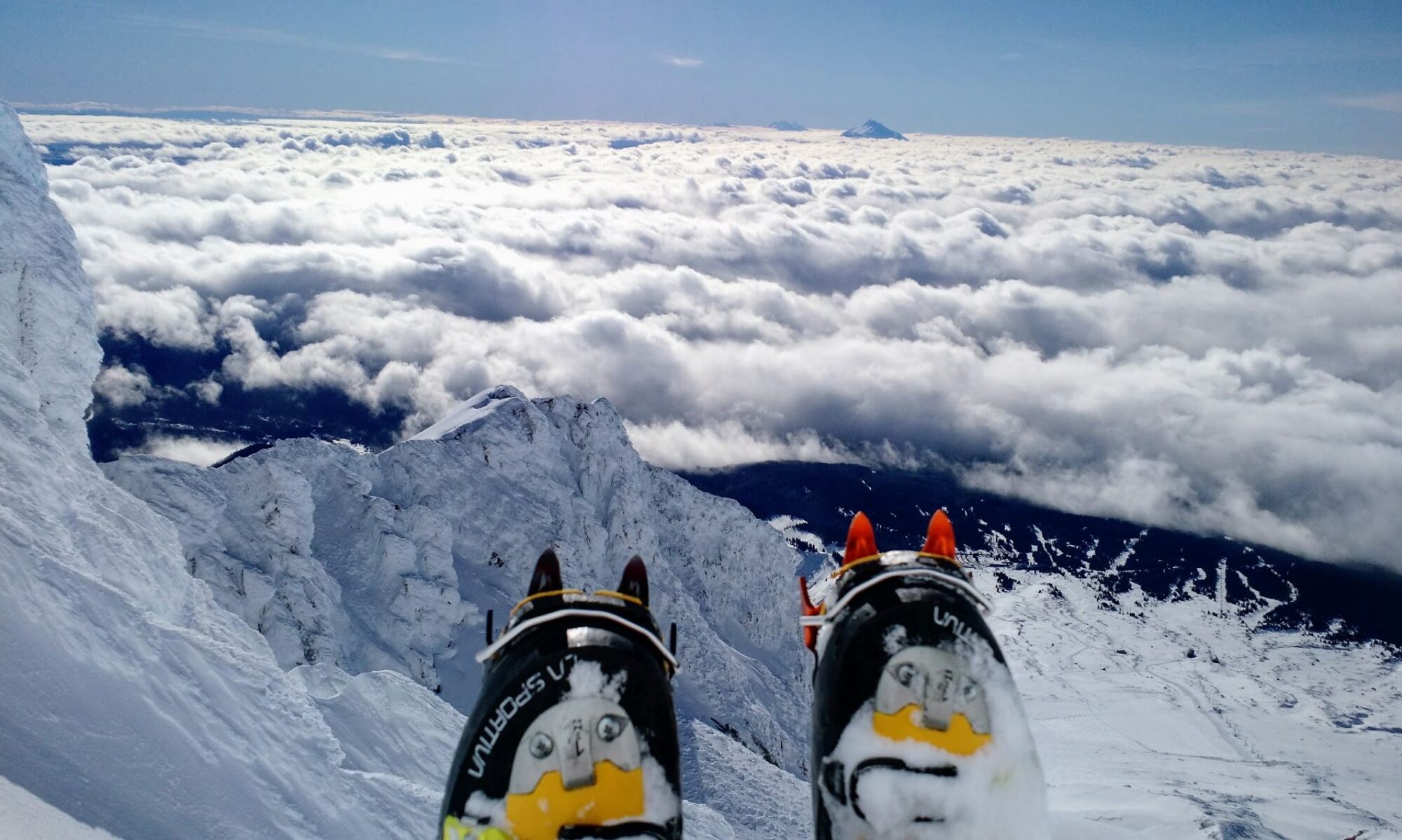
Diane hails from the Midwestern prairie landscape now mostly converted to cornfields and pig farms, but found her way to Oregon where her love for outdoor recreation, especially snowboarding, intersects with her professional passion for environmental ethics. Having worked for a conservation non-profit, Diane went to law school to become a more effective environmental advocate. She now works as an environmental lawyer in the public sector, advising Oregon natural resources agencies, primarily the Department of Environmental Quality, on water quality issues.
After trying splitboarding a handful of times, she applied for the Backcountry Ski Touring (BCST) program as a student in 2018, looking to solidify her skills and meet like-minded people. Some of the folks from the class are still her best snowboarding buddies. And she thinks that BCST provides such a unique opportunity for people to learn important skills that are beneficial in reducing accidents, keeping access open, and getting people the experience they need to enjoy the sport.
Diane is now chairing the BCST committee, responsible for the successful implementation of a complex curriculum that involves 7 lectures and 6 field sessions/on-snow tours. But she was initially hesitant to become a tour leader and assume increased responsibilities. At the time there was only one other woman tour leader. Diance thought about where her fear was coming from and decided to lean into it. After all, forcing yourself to teach something is the best way to really know it.
Her motivations come from both the ownership she feels for the program, and the fact that so many of her backcountry friendships have been cultivated here. She wants others to have that opportunity too.
While Diane may think of herself as an unlikely BCST leader, moving from the volunteer coordinator role into the committee chair has felt surprisingly natural. She already has a vision for 2025 to ensure continuity and is experimenting with building out new volunteer roles and subcommittees to respond to the growing list of past students excited to pay it forward as volunteers.
Name: Diane Lloyd
Pronouns: she/her
Year Joined Mazamas: 2014
Present-day outdoor activities: I love splitboarding – it’s my main activity. Like many, I have an 8-5, Monday through Friday job and it’s just too expensive and crowded to enjoy the resort every weekend. I’m also a hiker, backpacker, rock climber, and a bit of a mountain biker – but all of these sports take a backseat to snowboarding!
What’s your earliest outdoor memory: Growing up in Iowa, a landscape redundant with monocrops, I went to summer camp as a kid. This was the first time I experienced hiking and campfire cookouts surrounded by tall grass and verdant trees that seemed so much bigger back then. This experience inspired my interest in the environment and excitement for outdoor recreation, so I continued to seek out “wild landscapes,” which were a formative cornerstone of my professional and personal journeys.
How did you first hear about the Mazamas, and what prompted you to engage with the organization? I remember exactly when I heard about Mazamas from a friend. Hearing about the Basic Climbing Education Program (BCEP) made me think that it would be a good way to meet new people, get outdoor experiences, and gain new skills in a fun and organized way.
As more people seek to recreate outdoors, what advice would you offer them? I think the most important thing as outdoor recreation increases, is for people to get involved with the management of public lands. Exercising the “leave no trace” ethic is fundamental, and for public lands users there is a responsibility to understand the shared use (and competing interests) involved on public lands. As recreators, we’re also stewards, and it’s on us to balance sport and conservation efforts as active participants. Instead of getting siloed in your lifestyle sport, stay open to considering other uses or conservation efforts that are overlapping.
Here’s a few ways I’d recommend getting involved:
- Depending on your recreation type, you can seek out info on social media and websites that describe the issues, advocacy efforts, and budgets for public lands. For example, state parks are often heavily used by mountain bikers, while national forests are used by backcountry skiers and snowboarders.
- Provide comments during open public comment periods. A successful example of this recently was for Mount Hood’s backcountry permitting process. This type of engagement directly influences decision making.
- Advocate for sufficient funding for public lands and natural resource management agencies.
- Lastly, minimize your own impact on land, wildlife, and water quality by educating yourself and others in “leave no trace” principles. Being a good steward on a micro level means taking good care of your own sh*t, literally, at times.
What activities/situations/people most inspire you? Many of my ski partners are inspiring individuals with busy careers and other competing priorities, so time on the skin track together is really special. Splitboarding is a social activity and it allows for time to talk and share things that inspire each other.
What is your favorite book/movie/TV show/social media account that you follow and why? I’m following the podcast “Buddy Check” right now, which is about (romantic) relationships with climbing partners. It dives into traditional gender roles, heterosexual relationships, and climbing. Turns out, humans play out those traditional, heteronormative gender roles at the climbing gym, which speaks to dynamics I may have felt at times but never really deeply analyzed.
What’s on your adventure bucket list? .So many things! I love volcano skiing in the spring, so this year I’m scoping out lines with conditions that are harder to time just right – Bailey, Diamond, Thielson and El Dorado are on my radar, but I’m also interested in some other objectives off the beaten track, like getting lines in the Steens or Strawberries. Even though international snowboarding trips are always exciting, there is so much to do around the Pacific Northwest!


If you like podcasts, I highly recommend “The Bomb Hole”.